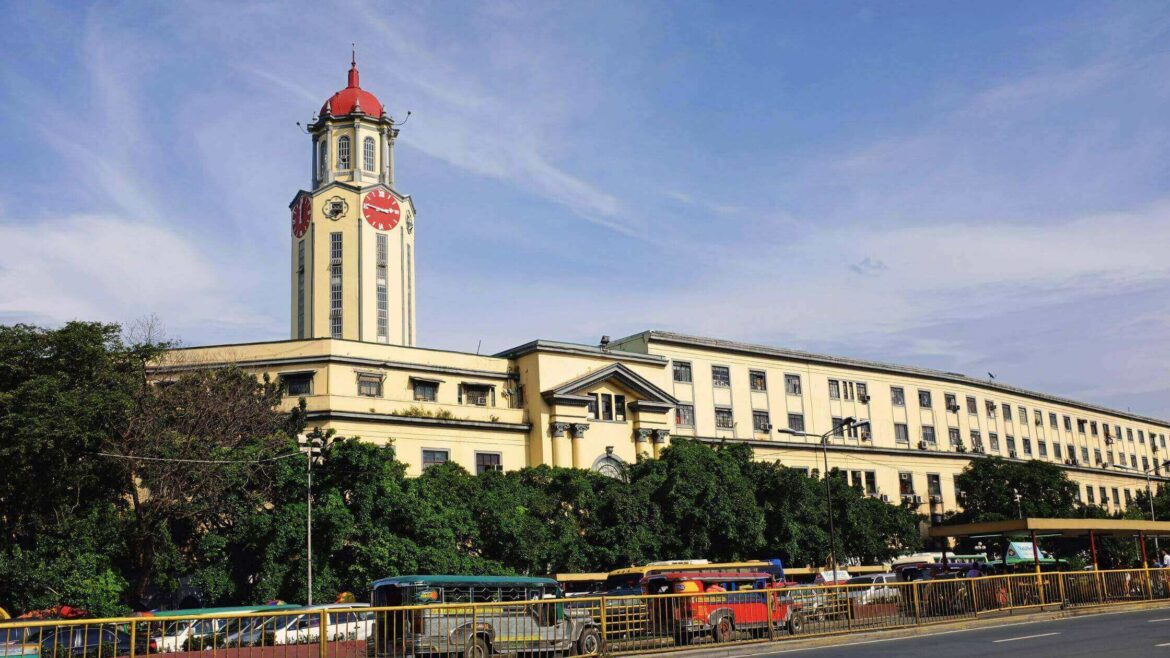Want to know the average salary in Philippines?
As one of the biggest outsourcing destinations in the world, the Philippines has a much lower average salary compared to countries like the USA, UK or Australia.
In this article, we’ll take a close look at what the average salary in Philippines is and why that lower average doesn’t actually hurt Filipino employees.
We’ll also cover four reasons why the Philippines is an excellent outsourcing destination.
Table of contents
- The average salary in Philippines
- Why lower outsourcing salaries don’t hurt Filipino employees
- 4 reasons why the Philippines is a perfect outsourcing destination
- How to keep your outsourced Philippines team productive
Let’s get started.
The average salary in Philippines
Like any other country, Philippines salaries can differ based on various factors, like:
- Years of experience and current job position.
- Industry and market differences.
- The area you reside in and work in.
Despite such differences, these Philippines average salaries can give you a better overview of the Filipino population and economy.
So what’s the average salary in Philippines?
Here are some key statistics from 2018 about the average salary in the Philippines:
(In Philippine Pesos and converted to United States Dollars)
- The average salary in the Philippines was PHP 161,847.60/year ($3,218).
- The median salary in the Philippines was PHP 655,200/year ($12,955). (Median represents the middle value between all salaries considered, while average divides the sum of all salaries by the number of salaries considered.)
- The average salary of Filipino BPO employees was PHP 375,000/year ($7,395).
- In 2018, the average Filipino family income was PHP 313,000/year ($6,231.27).
- In the National Capital Region, an average family’s income was around PHP 460,000/year ($9,157.78).
Let’s look at the salaries for some common jobs in the Philippines to get a clearer idea of how much everyone earns. We’ve mentioned each job’s starting salary as well as the salaries for more experienced positions:
| Job Title | Entry | Junior | Senior |
| Accountant | $4,407 | $7,324 | $8,464 |
| Call Center Agent | $3,400 | $4,080 | $7,654 |
| Inside Sales Representative | $5,220 | $8,900 | $9,060 |
| Real Estate Agent | $7,663 | $11,625 | $15,587 |
| Software Engineer | $5,962 | $8,030 | $14,202 |
| Project Manager | $5,830 | $11,602 | $20,303 |
| (Human Resources) HR Manager | $8,732 | $10,419 | $19,438 |
| (Information Technology) IT Manager | $9,913 | $12,461 | $16,298 |
| Customer Service Representative | $4,108 | $5,027 | $7,491 |
| Administrative Assistant | $3,203 | $4,467 | $5,873 |
| Data Analyst | $5,356 | $7,617 | $8,279 |
| Human Resources Assistant | $3,320 | $3,606 | $4,244 |
| Human Resources Officer | $4,322 | $6,056 | $10,644 |
| Executive Assistant | $4,379 | $6,859 | $7,954 |
| Copywriter | $4,784 | $7,434 | $8,279 |
| Marketing Manager | $7,885 | $13,838 | $19,281 |
| Graphic Designer | $3,605 | $5,113 | $6,623 |
| Front End Developer | $4,730 | $7,220 | $13,652 |
| Design Architect | $4,851 | $6,976 | $8,416 |
| Business Analyst | $5,941 | $8,628 | $12,175 |
| Operations Manager | $6,069 | $10,635 | $17,112 |
Source: PayScale

Why lower outsourcing salaries don’t hurt Filipino employees
You may be wondering:
Since the average salary in Philippines is much lower than in other countries, does it hurt Filipino workers?
Don’t worry.
If you’re looking to outsource to the Philippines and are worried about these rates, you have nothing to fear.
Like any other country, the average salary is a result of a few factors that make it adequate for Filipino workers.
Here’s a closer look at this:
1. Lower cost of living
Despite lower salaries and an unfavorable exchange rate (in August 2024, 1 USD = 57.52 PHP), one of the main factors that allow Filipino employees to live comfortably is the country’s low cost of living.
Think about it.
With a lower cost of living, you don’t have to spend most of your annual salary for your daily needs!
According to the Philippine Statistics Authority (PSA), a family’s average yearly expenditure in 2023 was PHP 258,000 ($4,506).
2. Outsourced salaries vs. the minimum wage
The Filipino minimum wage ranges from PHP 573 (US$5.70) to PHP 610 (US$10.98) per day, varying across the country’s regions.
This minimum wage is supposed to cover all the essential needs of an individual.
However, it’s often seen as far too low to sustain basic needs for most individuals — who end up spending 75-80% of their salaries on basic necessities alone!
In comparison, the average salary of a BPO employee is around PHP 375,000/year ($7,395), which amounts to above PHP 1027 ($20.31) per day.
Considering the difference between their average monthly salary and the minimum wage, it’s clear that most BPO employees earn enough to sustain a comfortable lifestyle.
4 reasons why the Philippines is a perfect outsourcing destination
The low salary cost makes the Philippines a great option for outsourcing — but that isn’t the only reason!
After all, lower salaries are only one of the aspects you consider when choosing your BPO provider. You need to also think about the quality of work, the data privacy regulations, etc.
The Philippines manages to address all these concerns and more, making it the leading outsourcing destination in the world. In fact, the Filipino cities of Manila, Cebu City and Davao are listed among 2019’s top 100 outsourcing hubs worldwide!
So here’s a closer look at 4 factors that make the Philippines an ideal outsourcing destination:
1. Access to skilled talent at low costs
When outsourcing non-critical tasks, most companies look to cut costs — but not at the expense of quality, right?
Luckily, the Philippines offers highly skilled talent at a fraction of the salary you’d pay a US employee!
The best part?
There’s no shortage of talent you can hire!
Thanks to the Philippines’ high literacy rate of 98.18%, there’s a massive influx of graduates with a bachelor’s degree into the labor force every year.
Moreover, the Philippines government’s TESDA (Technical Education and Skills Development Authority) program provides training for BPO sector employment. All these factors contribute to a huge availability of Filipino talent that’s perfect for your outsourcing needs!
2. English fluency
With most foreign BPOs, there’s a language barrier that makes collaboration incredibly difficult.
For example, they might not be fluent in your language of choice (usually English) – which leads to frequent miscommunication.
However, this isn’t the case with the Philippines.
Why?
Along with Filipino (Tagalog), English is also used as an official language in the Philippines.
In fact, the Philippines has one of the largest English-speaking populations in the world!
This is the main advantage of using the Philippines as an outsourcing hub over other foreign countries.
Rest assured, you’ll face no problems in communicating effectively with your outsourced Filipino teams. They can even expertly handle call centers and other client-facing services as per your needs.
3. Tax benefits
The Philippines is not the only foreign country with lower salary costs.
However, favorable tax laws make the Philippines a much more cost-friendly alternative for your BPO needs!
To support the growing BPO industry, the Philippines government has introduced many tax benefits to make the country an attractive outsourcing destination. The Special Economic Zones Act is one of these.
This act offers several tax exemptions and benefits for foreign companies, including:
- Four-year corporate income tax exemption.
- Duty-free imports for equipment, supplies, raw materials, etc.
- Local tax and permits exemptions.
- Permanent residency for foreign investors and their immediate family.
But that’s not all!
In addition to these benefits, you’ll receive further privileges and incentives by registering your business with the Philippine Economic Zone Authority (PEZA).
4. Data security and privacy regulations
Data privacy and security is a major concern for businesses thinking about BPO services. After all, you may have to share company details and relevant files to the third-party service provider.
However, by outsourcing to the Philippines, you can eliminate these worries easily!
How?
To safeguard the security of its outsourcing industry, the Philippines government has enacted strict regulations such as the Data Privacy Act.
Under the Data Privacy Act, anyone violating privacy regulations can face imprisonment for up to six years and a hefty fine of $20,000 to $100,000.
With such stringent laws in place, your data remains safe from reaching the wrong hands.
How to keep your outsourced Philippines team productive
Despite all the advantages that the Philippines offers for your BPO needs, managing remote teams can be difficult.
After all, when you work with a foreign team, how do you track the tasks they work on and the time taken per task?
Don’t worry.
The task isn’t impossible!
All you need is a remote team productivity tool like Time Doctor.
What is Time Doctor?

Time Doctor is a powerful remote team productivity tool used by large companies like PwC and Apple.
Time Doctor’s powerful features help you:
- Track how long your BPO staff spend on your tasks.
- Analyze tons of productivity reports for performance management.
- Ensure that the BPO Provider is only billing you for the work done.
- Prevent your outsourced team from getting distracted from the task at hand.
- Know if someone’s using websites or apps that violate your company’s policies.
With Time Doctor, you can easily improve the efficiency of your outsourced staff across the board!
Conclusion
The lower average salary in Philippines makes it the perfect option to easily fulfill all your BPO needs.
By outsourcing work to the Philippines during the Coronavirus pandemic, your business operations can continue to function effectively. To learn more about outsourcing to the Philippines, check out our detailed guide on business process outsourcing to the Philippines.



